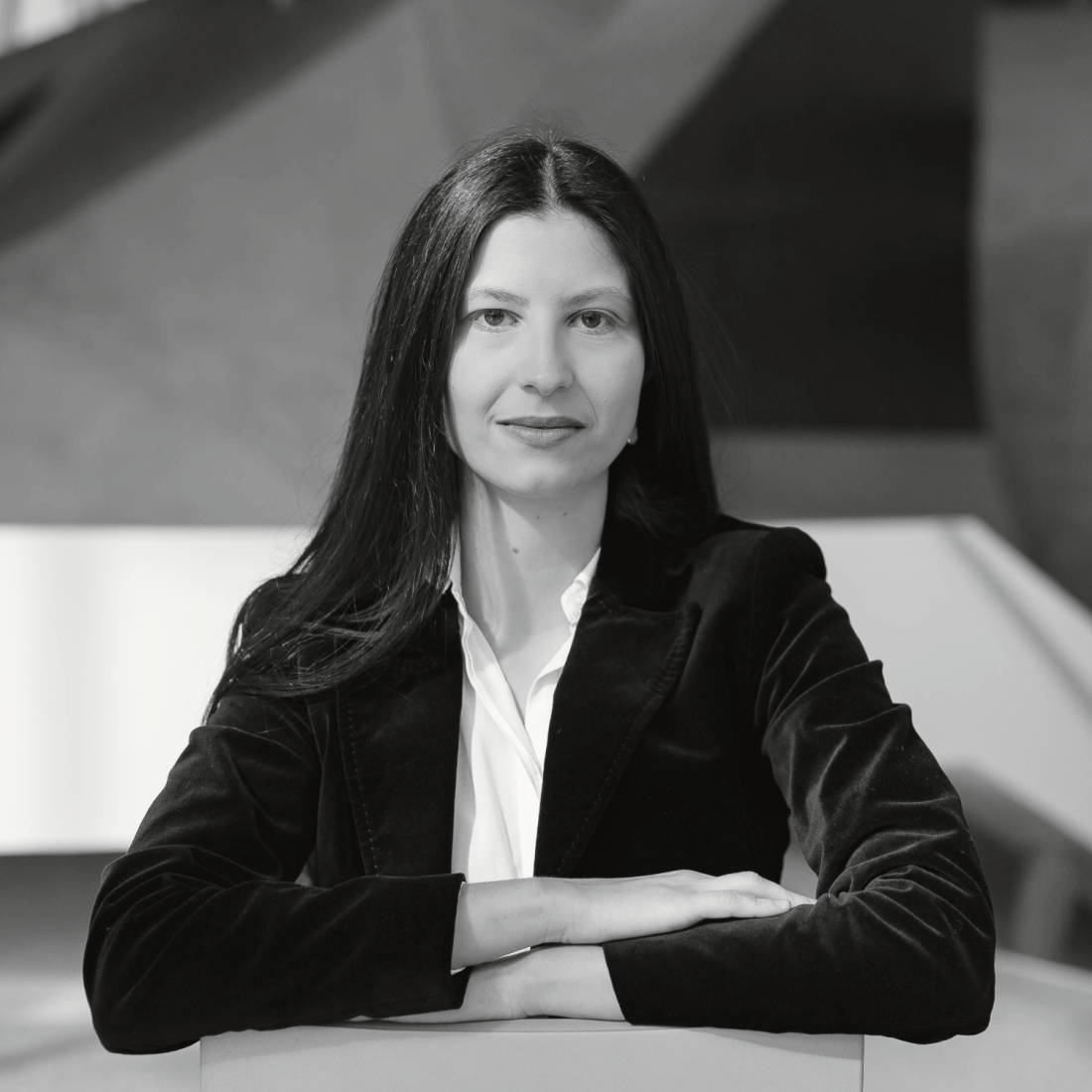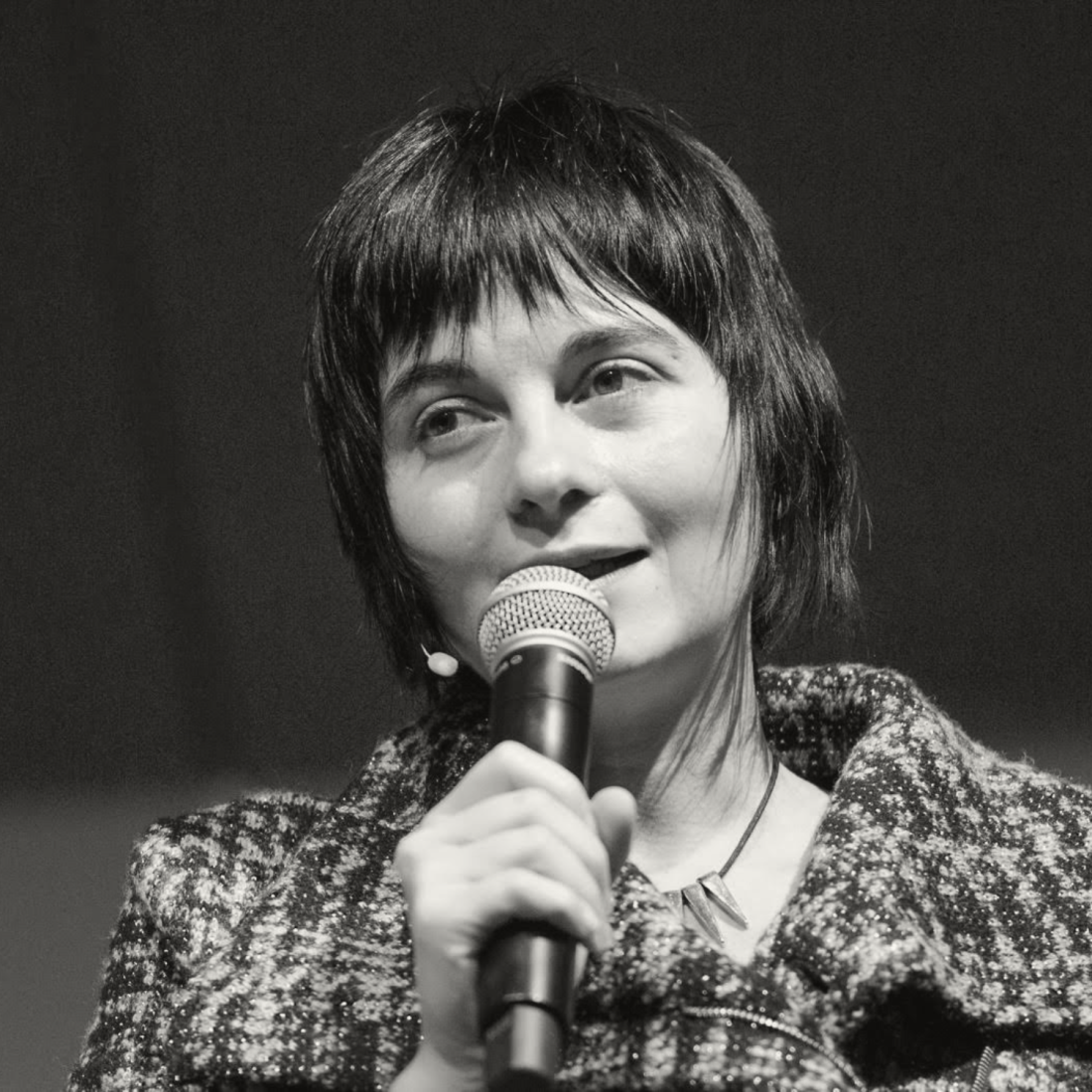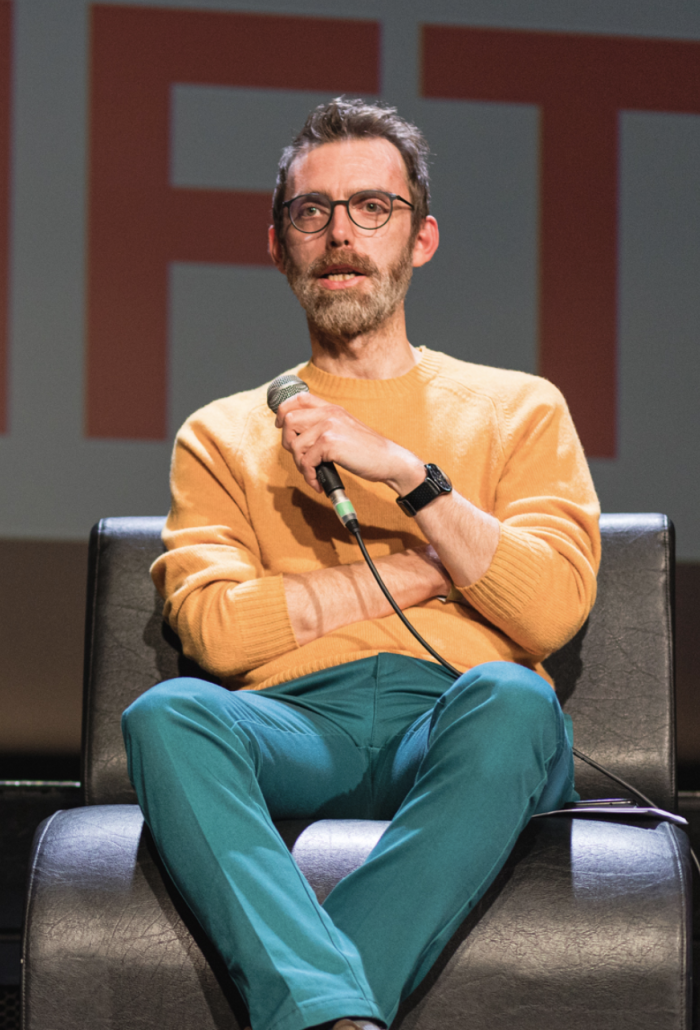
Datum en locatie
van 17 november 2025 tot 18 november 2025
Orpheus Instituut, Korte Meer 12, 9000 Gent (België)
Conferentie: Decentralised Creativity and Agential Systems in Music
Eventvan 17 november 2025 tot 18 november 2025Deze conferentie onderzoekt hoe opkomende technologieën - met name generatieve AI en blockchain - de huidige opvattingen over creatief agentschap herdefiniëren.Conveners: Adam Łukawski, Martin Zeilinger
InschrijvenThis conference aims to foster an interdisciplinary dialogue around the transformative role of agential systems in music and sound art, offering a platform to share innovative practices, critical perspectives, and creative insights.
Outline
Artificial intelligence (AI), with its learning algorithms operating at scale, can mimic human creative agency, and blockchain technologies, through smart contracts, can augment works of art with more or less autonomous behaviours that correspond to the agency of human participants in socio-economic interactions. While such developments can destabilise traditional notions of ownership, provenance, and agency in musical practices, they can also empower artists. Those working creatively with sound and music are today increasingly becoming system-builders and curators of musical ecosystems, turning their focus from the creation of singular, standalone musical works (in any traditional sense of the term) to the design of systems capable of generating artworks. This suggests an evolving role of music-producing systems today: from fixed intellectual constructs and creative expressions to dynamic, more-than-human technological networks that not only actively participate in the production of artworks with increasing levels of agency, but which can themselves be considered as artworks that constitute generative, expressive assemblages. This shift is further emphasised in distributed contexts, where varying levels of automation blur the boundaries between human and non-human contributions, creating environments where agency is negotiated and shared across diverse actants.
The call for contributions is now closed. Registrations are open.
Themes
We will be exploring the following themes:
- Generative and Collaborative Systems: How learning algorithms and distributed networks enable new forms of generative music and sound-based art. Case studies of collaborations between human and non-human agents in artistic creation.
- Decentralized Networks and Autonomous Works: The role of blockchain in supporting decentralized creative practices and enabling autonomous artworks. Explorations of smart contracts as a medium for embedding agency into artistic systems.
- Agency and Aesthetics in Posthuman Creativity: How agency is redefined when systems actively participate in the creative process. Aesthetic implications of emergent and distributed systems in music and sound art.
- From Frameworks to Agential Technologies: Historical precedents in systematic composition and their evolution into contemporary technological practices. How technological systems extend the boundaries of human creativity by operationalizing intellectual constructs.
- Ethical and Philosophical Reflections: The ethical considerations of embedding agency into systems and artworks. Philosophical perspectives on ownership, provenance, and the decentering of human-centric creativity.
We will welcome researchers, artists, and practitioners working across disciplines, including music, sound art, digital art, philosophy, media studies, and computer science.
Keynote speakers
- Timothy Morton (Rice University)
- Artemi-Maria Gioti (Mozarteum University Salzburg)
- Victoria Ivanova and Eva Jäger (Future Art Ecosystems, Serpentine Galleries)
- Primavera De Filippi (CNRS, Paris & Harvard University)

Timothy Morton
Timothy Morton (Professor and Rita Shea Guffey Chair in English at Rice University) is a philosopher and critical theorist whose work bridges object-oriented ontology, ecological thought, and art, best known for developing the concept of ‘hyperobjects’ and advocating for perspectives of radically entangled existence that dissolve boundaries between human and nonhuman actors and systems.

Credits: Lucija Novak
Artemi-Maria Gioti

Victoria Ivanova and Eva Jäger
Victoria Ivanova is a strategist, currently R&D Strategic Lead as part of Serpentine's Arts Technologies team where she leads the Future Art Ecosystems project that incubates new infrastructural prototypes at the intersection of culture, technology and society. She publishes and consults on innovative approaches to org design, policy, finance and rights. Her PhD, Infrastructural Praxis: A New Model for Art & Technology Curation and Organisational Innovation, positions art and technology as laboratory for testing new legal and economic models. Most recently, she led the Trusted Data Intermediary project together with Jennifer Ding, and co-designed a stewardship technology for art in partnership with RadicalxChange.

Credits: Paul Gordon
Eva Jäger is a London-based artist and curator, currently Curator of Arts Technologies and Creative AI Lead at Serpentine. She commissions artists working with advanced technologies and collaborates alongside these creators in teams that design novel approaches, workflows and philosophies for emerging tech. Most recently, she curated ‘The Call’ a project and exhibition in collaboration with the artists Holly Herndon and Mat Dryhurst. Eva also contributes to the Future Art Ecosystems project, working on annual briefings and prototypes, and serves as Co-Investigator of the Creative AI Lab (a joint initiative between Serpentine Arts Technologies and King's College London).

Primavera De Filippi
Primavera De Filippi is a Director of Research at the National Center of Scientific Research (CNRS) in Paris and a Faculty Associate at the Berkman Klein Center for Internet & Society at Harvard University. Her work explores the legal and governance implications of blockchain technology and artificial intelligence, with a focus on trust and institutional design. She is the author of Blockchain and the Law (Harvard University Press) and Blockchain Governance (MIT Press), and was recently awarded a European Research Council grant. As an artist, she produces mechanical algorithms that instantiate her legal research into the physical world, such as the Plantoid project (http://plantoid.org)—a blockchain-based synthetic life form capable of collecting funds and autonomously commissioning its own reproduction.
Schedule
Access the conference schedule now available
Tickets
Please register filling out this form.
Fees:
- Regular conference fee 70 euros
- Reduced student fee 35 euros
- Free for docARTES students.




